March 11, 2025
Driver Compliance Insights
Driver Background Investigations – What’s Really Required?
Hiring commercial drivers is a significant responsibility that requires diligence to avoid bad hires. An improperly vetted driver could lead to a nuclear verdict if involved in a crash.
Do Your Driver Qualification Practices Put Your Company at Risk?
February 5, 2025
Every person who operates a commercial motor vehicle (CMV) for a motor carrier must be qualified. But what does “qualified” really mean?
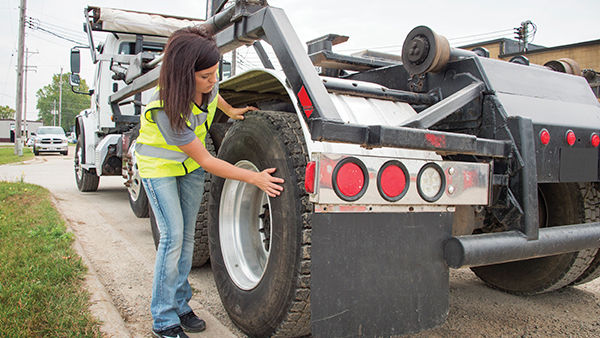
Roadside Inspections: How to Prevent and Survive Them
January 2, 2025
A roadside inspection is a nerve-wracking event for a driver and an event that holds significant consequences for a carrier. Therefore, a carrier and its drivers need to understand roadside inspection procedures and how to get the best possible outcome.

DOT Final Rule Ties Up Loose Ends in Saliva Drug Testing
December 12, 2024
Corrections have been made to address multiple issues with the Department of Transportation's (DOT’s) May 2023 saliva drug testing rule.
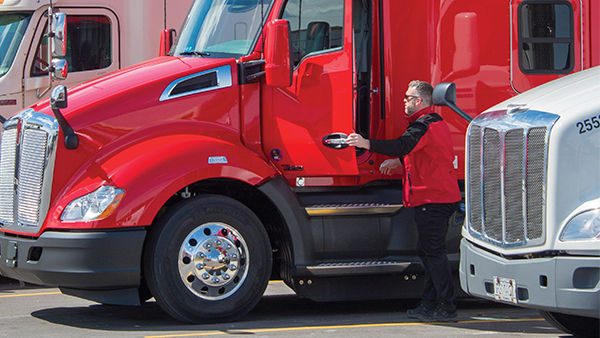
Clearinghouse Status to Impact CDLs Effective November 18, 2024
November 14, 2024
Drivers who have a Part 382 violation but do not pursue the return-to-duty process will soon lose their ability to hold a CDL once SDLAs tie licensing to a driver’s Clearinghouse status.

DOT Withdraws Latest Changes to Drug Testing Rules
August 1, 2024
Due to public opposition, the U.S. Department of Transportation (DOT) has withdrawn a few changes it recently made to its saliva-based drug testing rules.

The Crucial Role of Commercial Driver Road Tests
March 12, 2024
As part of the driver qualification process, private and for-hire interstate carriers must evaluate the skills of commercial motor vehicle (CMV) driver applicants.
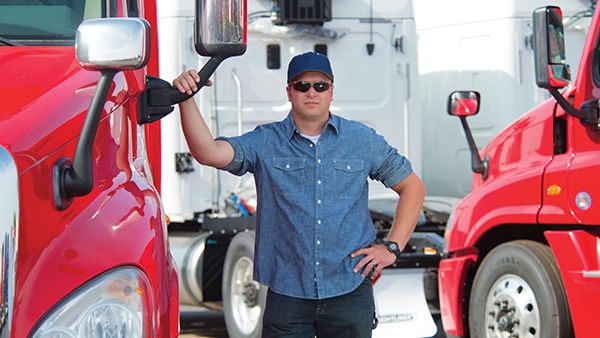
Focus Areas for CVSA International Roadcheck Announced
February 29, 2024
The Commercial Vehicle Safety Alliance (CVSA) recently revealed its two focus areas for the 2024 International Roadcheck, which is scheduled for May 14-16.

Is Your Drug Testing Provider Meeting the DOT Testing Rates?
January 9, 2024
Minimum testing rates will continue to be 10% for alcohol and 50% for drugs annually. Are you confident your drug testing provider is meeting these requirements?
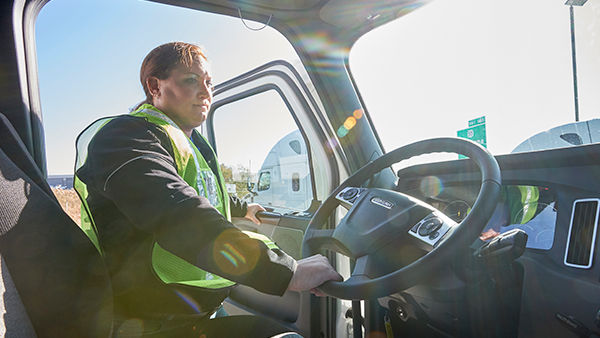
What Drivers Need to Know About Motor Vehicle Record (MVR) Monitoring
December 19, 2023
Here are the three things your drivers need to know about MVR monitoring, from what an MVR is to the benefits of ongoing monitoring and the regulatory requirements.
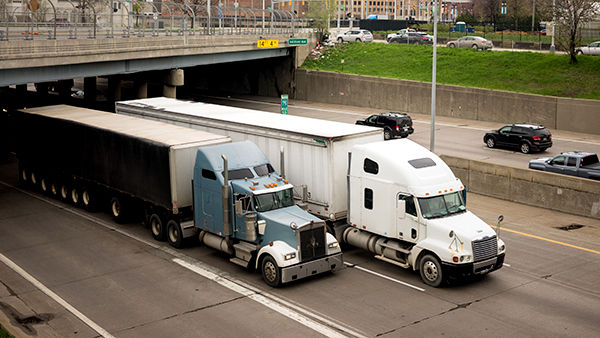
Annual MVRs Increase Risk: Use Ongoing Monitoring Instead
December 18, 2023
A motor carrier that dutifully requests motor vehicle records (MVR) on its drivers once per year increases the potential risk, even though they would be compliant.

How Data is Steering the Trucking Industry to Success
November 14, 2023
From telematics to tablets, e-logs to dash-cams, technology and data are revolutionizing the way motor carriers monitor their assets, manage risk, retain records, make decisions, and ensure compliance.

Are You Ready For Oral-Fluid Drug Testing?
October 16, 2023
Oral-fluid (saliva) drug testing will soon be an option for motor carriers when sending CDL drivers for DOT testing.

Reminder: Time's Up for Old Drug Testing Form
September 21, 2023
September 1, 2023, was the deadline for using the new Federal Drug Testing Custody and Control Form (CCF) in place of the 2017 version.

5 Best Practices to Steer Clear of Trouble When Hiring Inexperienced Drivers
September 6, 2023
When safety is a core value supported by industry-leading best practices, inexperienced drivers are likelier to stay safe, be successful, and remain with...

DOT D & A Program Checklist
August 29, 2023
To create a compliant and effective Department of Transportation (DOT) drug and alcohol testing program, key pieces must be in place. Use our checklist as you set up or audit your current program.
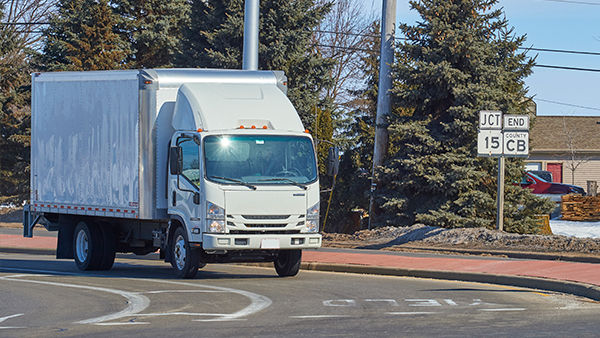
Managing Non-Traditional Commercial Motor Vehicle Drivers
June 23, 2023
Managing non-traditional commercial motor vehicle (CMV) drivers is a challenge, but it can be done. Read through some advice from the experts at J.J. Keller.

Consider These DQ File Retention Best Practices to Improve Compliance and Reduce Risk
May 25, 2023
J.J. Keller compliance experts share tips for best-in-class DOT compliance and answer frequently asked regulatory questions.

5 Steps to Prepare for International Roadcheck
March 29, 2023
While many are looking for a silver bullet when it comes to preparing for International Roadcheck, the annual roadside inspection blitz conducted by CVSA, there are actually five.

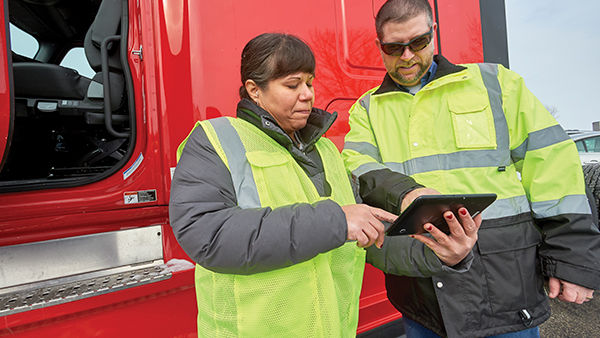
Training Recordkeeping Tips
November 14, 2022
Motor carriers must maintain a lot of records on their drivers. The Federal Motor Carrier Safety Regulations (FMCSRs) specifically require some recordkeeping, and employers should keep other records as a best practice and risk management strategy.

Clearinghouse Soon to be Sole Means of Investigating FMCSA Testing Violations
October 24, 2022
The Federal Motor Carrier Safety Administration (FMCSA) is removing the drug and alcohol history questions from the safety performance history inquiries effective January 6, 2023. The only means of learning of violations occurring under FMCSA testing (Part 382) is a query of the Drug & Alcohol Clearinghouse (DACH).
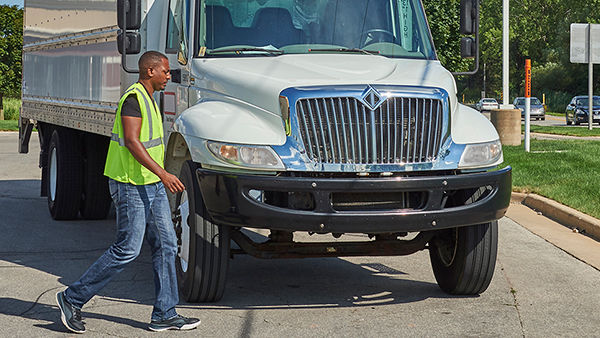
Driver Layoffs Versus Terminations - What is Required to Stay Compliant?
October 12, 2022
If a driver is terminated and removed from the driver roster after a seasonal layoff, the driver must be treated as a rehire if they return. An entire DQ file is needed.

Using Safety Scores to Reduce Risk
September 16, 2022
The basic premise of risk reduction is that you need to be able to use the data to see trends. This process tells you what is predictable when it comes to future risks. Once you know what is predictable, you can then take steps to avoid the risk.
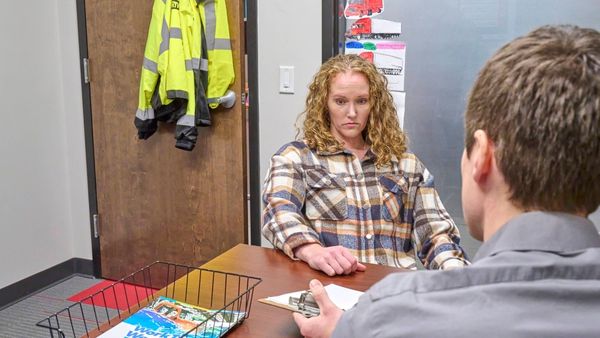
My Driver Tested Positive - Now What?
July 6, 2022
Total drug and alcohol violations in 2021 climbed to 59,252, a 10 percent increase over 2020. So far, the trend seems to be continuing in 2022, with a year-over-year increase of 16 percent in January. The cause of the increase is unknown. Perhaps the stress of the pandemic has led more drivers to self-medicate, or the driver shortage has resulted in carriers hiring questionable employees. No matter the cause, you need to know how to handle the situation if one of your drivers tests positive for a controlled substance.
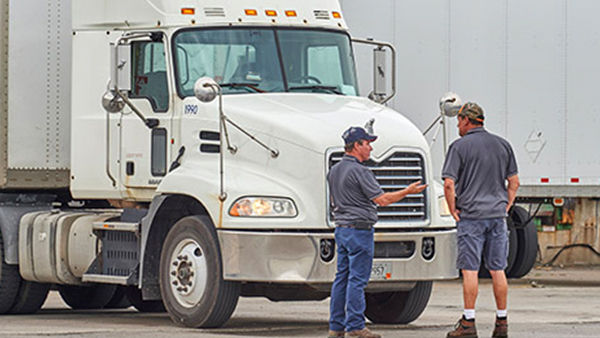
Five Stages of Effective Coaching
June 12, 2022
Carriers must transition from reacting to motor vehicle record (MVR) violations and crashes to proactive behavior correction to reduce the potential for damaging litigation. Carriers can benefit from a system that monitors and prioritizes the riskiest compliance and behavior data. After identifying the coachable events, the key is getting drivers to take accountability for positive change.

Non-Regulated Fleet Vehicles: Mitigate the Risk of Unsafe Driving
May 9, 2022
Drivers who operate company vehicles that are not subject to federal or state safety regulations may fly under the radar since there is no requirement to track the employee’s safety record.
Most insurance companies require a motor vehicle record (MVR) to determine whether a driver will be covered under the employer’s policy. But is this enough to counter claims of negligence in the event of a serious accident involving these drivers?

Keys to Avoid the Top Driver Qualification Violations
April 4, 2022
Driver qualification violations can arise during roadside inspections and FMCSA audits. Offenses that involve unqualified commercial motor vehicle (CMV) drivers increase potential liability.

Clearinghouse FAQs for Owner-Operators
March 8, 2022
Owner-operators are employers that employ themselves as CDL drivers, typically a single-driver operation. Owner-operators who are leased to another motor carrier are placed in the motor carrier’s DOT testing program.
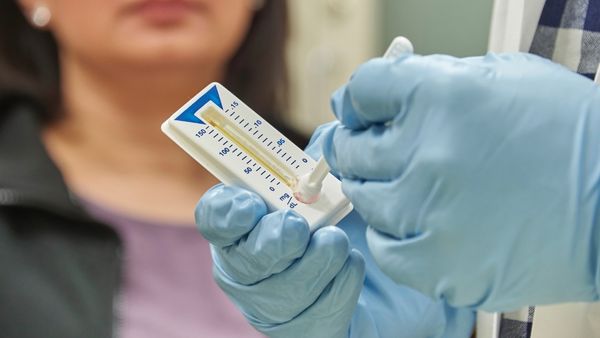
DOT Drug & Alcohol Testing
February 22, 2022
It’s easy to get lost in the weeds of drug and alcohol program testing requirements. If you don’t have a thorough understanding of when and whom to test, you risk putting drivers on the road who could be a danger to themselves and others. The requirements for drug and alcohol testing are set forth in Parts 40 and 382 of the Code of Federal Regulations.

It’s Better to Know When it Comes to Data!
January 24, 2022
When it comes to data, some in the industry claim you are better off not knowing what your carrier’s numbers look like. The argument goes something like this, “How can we be held responsible for something we didn’t know about?” Advocates of this approach argue that it’s better to pretend they didn’t know the data was there than to take the time to gather the data and try to use it properly.
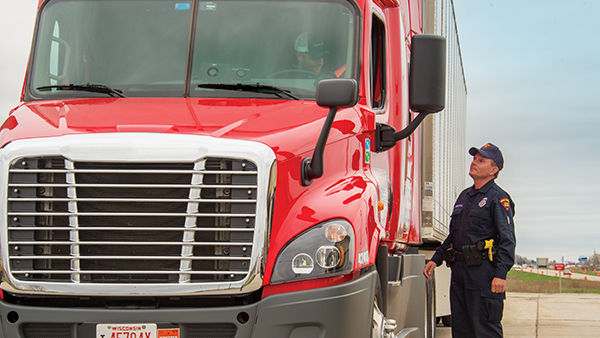
Unsafe Driving BASIC: Have You Been ‘Warned’?
December 13, 2021
A warning letter from the Federal Motor Carrier Safety Administration (FMCSA) is sent to motor carriers who have identifiable, but not yet severe, safety issues.

When to Join a Drug & Alcohol Consortium
November 17, 2021
I was recently contacted by a carrier with two drivers of CMVs requiring CDLs wanting to know if they had to be part of a consortium for their DOT random drug and alcohol pool. The short answer is no. The Federal Motor Carrier Safety Regulations (FMCSRs) only specify that there must be two or more covered employees in a random testing pool.

Perform DQ File Self-Audits: Don't Take the Risk of Not Knowing
November 11, 2021
Each year, driver qualification violations appear in the list of top acute and critical violations discovered during motor carrier audits.

New Near, New Beginning: A Time to Review Your DOT Testing Program
October 18, 2021
The end of any calendar year is a time to closely monitor your DOT drug and alcohol testing program. Examine the following six points on program management as 2021 draws to a close.

Motor Vehicle Records (MVRs) Frequently Asked Questions
August 19, 2021
Understanding what MVRs are and why checking them often will reduce your risk. Because past behavior is a good predictor of a driver’s future actions, your drivers’ motor vehicle records (MVRs) are a vital piece of your safety management program. By identifying risky behaviors now, you can help prevent crashes tomorrow.

Who Keeps Owner-Operators' Records?
August 17, 2021
Independent owner-operators who operate under their own authority are required to keep a variety of records for DOT compliance. But when those same owner-operators sign on to work for another motor carrier — even temporarily — the picture changes.
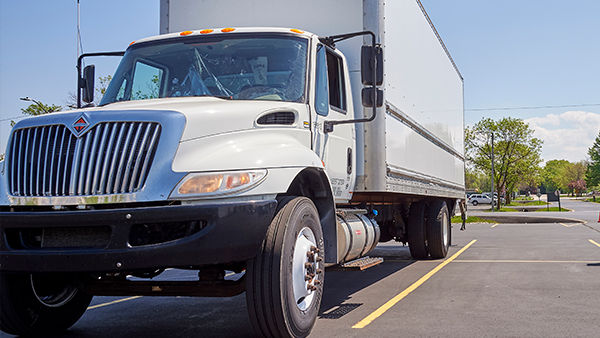
Owner-Operators: Avoid These Record Keeping Traps
July 15, 2021
Owner-operators often need to wear many hats, including driver, mechanic, dispatcher, and safety director. When it comes to DOT compliance, “record keeper” is another vital role.

Who Needs a Driver Qualification (DQ) File?
May 14, 2021
Many people think a driver's qualification (DQ) file goes hand-in-hand with a commercial driver's license (CDL). This misconception has created confusion (and compliance issues) for many carriers. For interstate drivers, the need for a DQ file is based on the size and type of vehicle, not the type of license a driver holds.

What is a Return-to-Duty Test?
March 16, 2021
A return-to-duty test is conducted as a part of the Return-to-Duty process of Subpart O of Part 40. When a driver has a DOT drug and alcohol violation, he or she must complete specific steps in order to resume safety-sensitive functions.
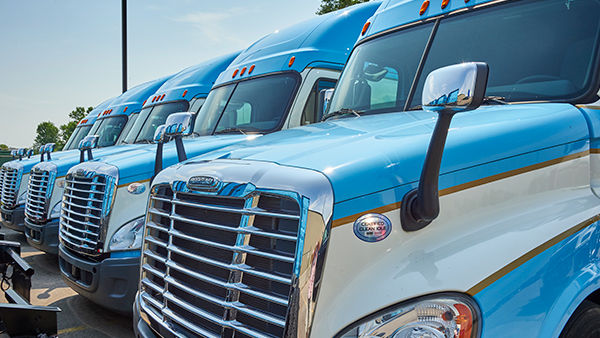
More Frequent MVRs Reduce the Risk of Not Knowing
February 16, 2021
Even if a motor carrier faithfully requests the required annual motor vehicle record (MVR) on its driver, a driver's more recent history can go undetected up to 12 months. Of course, commercial drivers are supposed to notify employers of loss of driving privileges and certain violations between MVRs. If a driver doesn't let the carrier know, is the carrier still held responsible? Unfortunately, yes. And the implications can go beyond compliance.
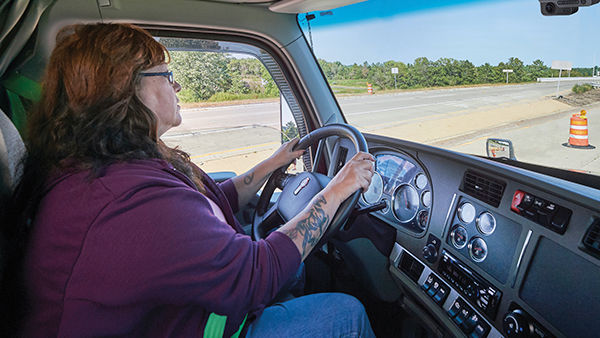
What Needs to Be in a New Driver's File?
January 13, 2021
Onboarding a new driver requires putting a system in place to ensure everything is complete — and completed on time. Putting an unqualified driver, even inadvertently, behind the wheel of your commercial motor vehicle (CMV) opens your carrier up to fines in the event of an audit and nuclear verdicts if the driver is involved in a high-profile crash.

How to Request Your First Annual Clearinghouse Queries
December 14, 2020
The one-year anniversary of the CDL Drug and Alcohol Clearinghouse should be a reminder that annual queries are coming due. A motor carrier must request its first annual queries no later than January 5, 2021, for those drivers who were in a Part 382 program on January 6, 2020. Anyone hired after would need an annual query within a year of the pre-employment query; similar to how the annual motor vehicle record is requested under driver qualification.

Prepare Your Drug & Alcohol Program for 2021
October 9, 2020
The end of any calendar year is a time to closely monitor your DOT drug and alcohol testing program. Two crucial deadlines are fast approaching as 2020 draws to a close.

5 FAQs on Annual Drug & Alcohol Clearinghouse Queries
December 1, 2020
It's been almost a year since the Federal Motor Carrier Safety Administration (FMCSA) launched the Commercial Driver's License (CDL) Drug and Alcohol Clearinghouse. This one-year anniversary should be a reminder to many that annual queries are coming due.

Hours of Service Changes
Effective September 29, 2020
Changes to the hours-of-service (HOS) regulations are set to go into effect September 29, 2020. With many drivers already struggling to understand or comply with the HOS regulations, these upcoming changes pose yet another challenge.